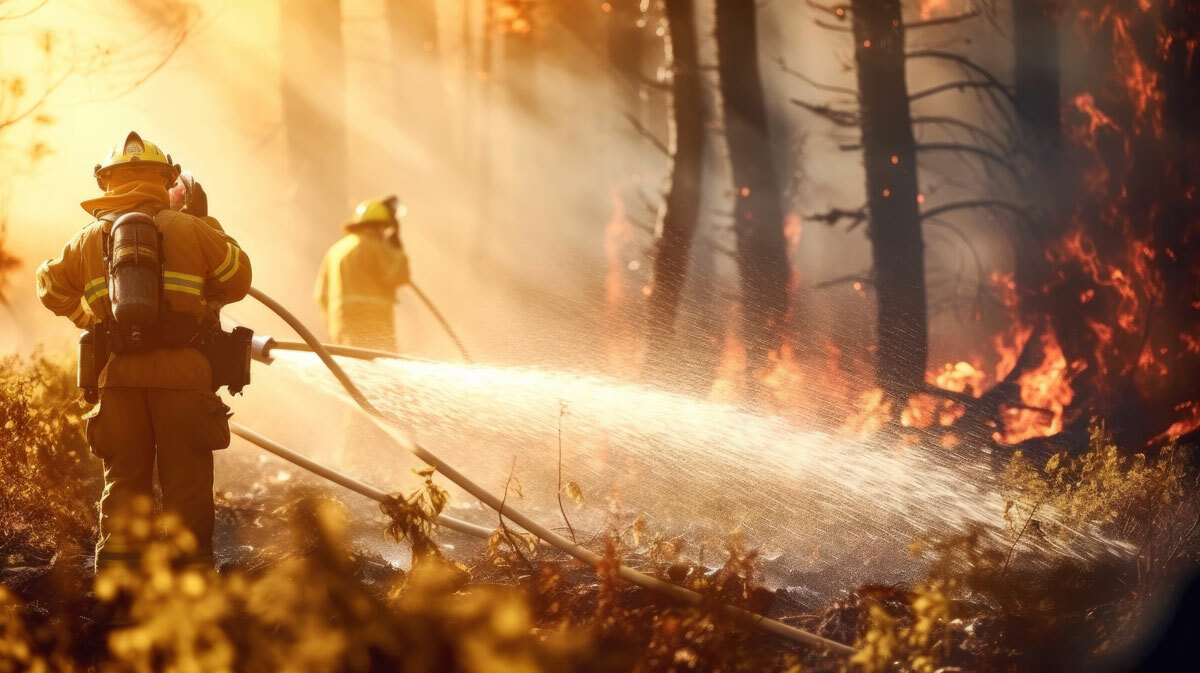Research reveals impact of bushfires on mental health of emergency services


The Black Summer bushfires were unprecedented in their duration and intensity, causing widespread destruction of both homes and wildlife.
New research has investigated the short and long-term impacts of exposure to the 2019-20 bushfires on the mental health and wellbeing of volunteers and employees in 19 fire and rescue agencies.
The After the Fires research project found that across the fire emergency sector over 5,000 volunteers and employees have a high need for mental health support and only 1,000 have received adequate support.
In a recent webinar, lead author Dr Wavne Rikkers, discussed the implications of the study findings and why they are so critical to our ongoing safety in a drying and warming climate.
Australia is heavily reliant on volunteers for disaster response
Over 80,000 people were involved in the response to the Black Summer fires, and 80% of them were volunteers. Volunteers are exposed to the same risks and intensity of work as paid firefighters and it was often the same group of volunteers who respond to crisis after crisis.
Number of fire and rescue volunteers and employees
- 221,800 volunteers across the fire and rescue, rural fire, and SES sectors
- 22,240 employees across the fire and rescue, rural fire and SES sectors
- 18,200 estimated operational firefighters
Australian emergency services have a culture of being stoic and strong to be able to help others. This often impacts mental health and wellbeing. Rates of mental health issues, including anxiety, depression and PTSD, are twice as high in emergency services personnel, and many people involved in the Black Summer fires are still suffering from the experience.
National preparedness for response to future disasters needs to include support for wellbeing of volunteers to ensure Australia can maintain a viable volunteer workforce.
"We found that a decrease in preparedness of the volunteer firefighters, increased the psychological distress they experienced."
Factors contributing to firefighters' declining mental health
- Increase in large-scale natural disasters have consequently resulted in increased dependency on volunteer workers
- Disproportionate and belated mental health response and training
- The stigma surrounding mental health and lack of time away from these traumatic environments, has resulted in the degrading of mental health among firefighters, along with the willingness to seek support for their mental health.
Recommendations to reduce impact of bushfires on mental health
- Early interventionfor preventing mental health conditions from escalating (which could be executed by emergency service agencies through training on early warning signs of mental health, regular mental health check-ins and the provision of counsellors who can connect with firefighters through shared experiences
- A rotation system, with scheduled breaks which emphasises the importance of self-care in these high stress environments will positively impact the mental health of firefighters.
- Increase in mental health support services will allow more volunteers to become peer supporters, establish partnerships between communities and encourage regular check-ins with volunteers proceeding a traumatic event.
- An improvement in the way in which volunteers are viewed was also a constructive outcome from focus groups organised through the After the Fires research.
Meet the presenter
Dr Wavne Rikkers is a Senior Research Officer in the School of Population Health at Curtin University, and she has a wide range of research experience in emergency workers’ mental health. She was a co-investigator on After the Fires, and she also worked on Answering the Call, the national survey of the mental health and wellbeing of police and emergency services, on behalf of Beyond Blue.
Her doctorate focussed on the barriers to mental health help-seeking among Australian emergency services workers, and she has worked on a number of other projects investigating the mental health of first responders and their families. Wavne also has considerable experience in child and adolescent mental health research, gained at the Telethon Kids Institute.
